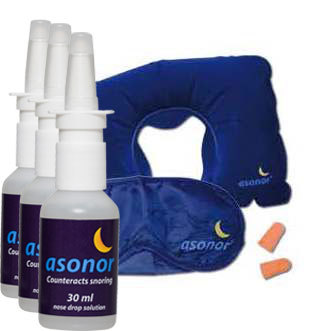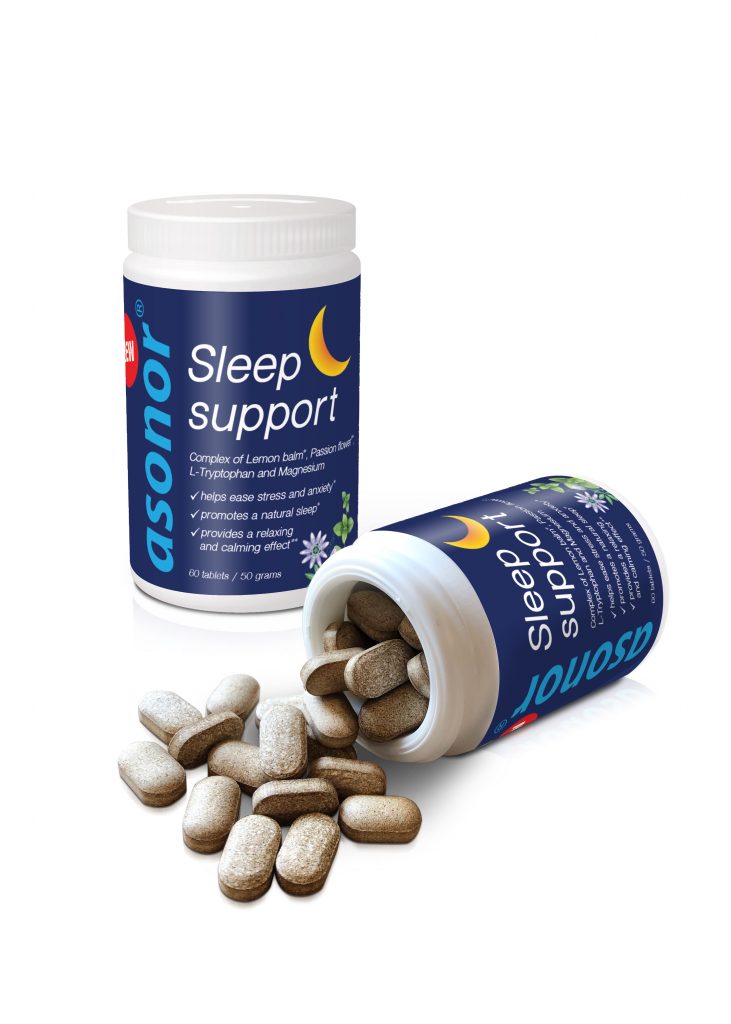Can sleep apnea cause anxiety? This is a valid question and is relevant because sleep deprivation affects the emotional, cognitive and physical well-being. Individuals afflicted with sleep apnea are known to have low blood oxygen levels, fatigue, mood swings, disrupted sleep patterns along with high stress levels. And that can lead to panic attacks, anxiety and exacerbate other mental health problems.
What is anxiety?
An emotion, anxiety is characterized by stress, uncontrolled fear and intrusive thoughts. It has physical signs such as restlessness, sweating, hypertension, poor focus, fatigue and an increased heartbeat.
Anxiety and sleep issues are deeply connected and that is why oftentimes, sleep apnea is one of the leading causes of mental health issues. Basically, sleep apnea leads to pauses in breathing during your sleep, leading to interrupted sleep, chronic sleep deprivation and high stress levels. Cognitive, mental and behavioral issues stem due to sleep deprivation. As per, Anxiety and Depression Association of America (ADAA) sleep deprivation makes anxiety and other psychiatric issues worse and in turn, anxiety can make it difficult to fall asleep. And the vicious cycle continues.
Most people experience anxiety occasionally. However, if an individual has excessive or long-term anxiety for most days in 6 months, it is classified as generalized anxiety disorder (GAD). This disorder can create issues in daily living, work, personal relationships and other aspects of life. Some of the anxiety issues border with phobias and fears exacerbating the tension and worries.
Symptoms of anxiety
According to ‘Diagnostic and Statistical Manual of Mental Disorders’ some of the key symptoms of anxiety disorder include:
- Dizziness
- Sweating
- Restlessness
- Fatigue and muscular tension
- Irritability
- Intrusive thoughts and worry
- Poor sleep and difficulty staying asleep
- Concentration issues
- Recurring panic attacks/phobias
What is Sleep Apnea?
Sleep apnea has long been recognized as a potentially serious and dangerous sleep disorder in which a person’s breathing is intermittently interrupted or stopped completely and then starts again. If you’re partner complains about how loudly you snore and you still feel tired after sleeping through the night, you might be one of over 900 million sleep apnea sufferers in the world today. Three types of sleep apnea have been documented in research including:
- Central sleep apnea – typically results when your brain fails to send the right signals to those respiratory muscles that control your breathing
- Obstructive sleep apnea – OSA is the more common type that usually occurs when the muscles of the throat relax
- Complex sleep apnea syndrome – also referred to as “treatment-emergent central sleep apnea”, this disorder is a combination of OSA and central sleep apnea.
If you suspect that you or a loved one has sleep apnea, make an appointment with your doctor to evaluate your circumstances and determine whether sleep apnea treatments are what they recommend. Oftentimes, snoring is ignored as a harmless nuisance and the underlying health issues go ignored. It can cause a lot of health issues later on. That is why it is essential to get a proper diagnosis on the underlying health concerns.
Sleep apnea is a serious health issue wherein the breathing stops for a few seconds and this can happen about 10-25 times or more in an hour. If you or your bed partner has experienced it, the other common symptoms of sleep apnea include:
Symptoms
- Loud, heavy regular snoring
- Excessive daytime drowsiness
- Waking up due to choking or gasping when asleep
- Poor concentration and lack of focus
- Dry mouth and morning headaches
- Low libido and sexual dysfunction
If sleep apnea is untreated, it can lead to low blood oxygen levels, stroke, diabetes, asthma and hypertension. Additionally, it can create a wedge in relationships as snoring and sleep deprivation affects both the bed partners.
What Causes Sleep Apnea?
Sleep apnea typically occurs when the muscles located at the back of the throat relax. The side walls of the throat, the soft palate, the tongue, the tonsils, and the uvula are all supported by these throat muscles. When those muscles relax, the airway narrows and sometimes closes as you inhale. Consequently, you’re unable to get enough air. That causes you to have innumerable interruptions all through the night when you wake up gasping for air with a choking sensation. This is one of the main causes of unrestful sleep, poor daytime alertness levels and mood swings, apart from cognitive issues later on.
When your brain senses that you’re not getting enough air, it briefly arouses you so that your airway reopens. This is typically a very brief awakening so you probably won’t be aware of it or remember it. Furthermore, you might choke, gasp, or snort. This pattern often repeats itself between 5 and 30 times (sometimes more) every hour throughout the night, thereby hindering your ability to fall into a deep, restful sleep.
How are Sleep Apnea and Anxiety Linked?
Sleep apnea is a harbinger of various diseases in the body, but it can affect your mental health too. As per studies, individuals diagnosed with sleep apnea tend to have higher anxiety levels and are prone to panic attacks. Both sleep apnea and anxiety are linked and share similar signs- fatigue and insomnia and that creates a vicious cycle. For individuals with sleep apnea, the breathing cessations during the night jolt you awake, leading you with sleep deprivation. Now, sleep deprivation makes it difficult for the brain to deal with stress, exacerbating mental health disorders such as anxiety. While intense anxiety leads to difficulty with sleeping or insomnia and that makes undiagnosed sleep apnea severe.
Can Anxiety Cause Obstructive Sleep Apnea?
While we are fairly sure that anxiety is often caused by OSA, we can’t be 100% certain that anxiety may lead to obstructive sleep apnea. Most researchers agree that stress disturbs good sleep and eventually aggravates OSA. It’s still important to realize that even though anxiety and sleep apnea often go hand-in-hand, one is not necessarily the cause of the other. However, even the most basic correlation between the two will cause someone who is anxious to suffer from sleep deprivation. That can trigger mood swings and cognitive issues as restful sleep is essential for hormonal balance and cognitive functioning.
Can Sleep Apnea Cause Anxiety Attacks?
The question “Does sleep apnea cause anxiety?” is often a difficult one to answer. In a sleep apnea episode, your brain receives a “panic signal” which triggers the body to start breathing again. This prevents you from getting the deep, peaceful sleep that your body requires and can provoke an anxiety attack as a result. Thus, it is inter-related and is a vicious cycle that needs to be broken for you to get rest and proper sleep. By suing OTC snoring remedies, often mild and moderate cases of snoring are reduced considerably. When the body gets some rest, the mind relaxes and anxiety issues are reduced.
From a neurochemical perspective, sleep apnea can trigger an anxiety attack in another way. Sleep apnea episodes often lead to a condition called “sleep debt” which makes it difficult for your brain to cope with the stress that results. The more often this occurs, the stronger the adverse effect it has on your ability to concentrate and your mood.
Whether you’ve been diagnosed with OSA or not but your snoring is a problem, you should consider trying Asonor Anti-snoring Solution for snoring relief. Our anti snoring product has been clinically proven effective in 75% or 3 out of every 4 cases studied. As it is effective and is time tested, why not try our product today and see what getting a good night’s sleep is all about? For more information, contact Asonor at [email protected] or by clicking here. Our experts are available to assist you with information about our product and related information.
Does Treating Sleep Apnea Help with Anxiety?
Sleep apnea is marked by frequent pauses during your sleep which leads to low blood oxygen levels and fragmented sleep. Individuals are sleep deprived which in turn enhances stress levels, heightened anxiety and has negative effect on the mental health problems. Many studies show that properly treating sleep apnea ensures better sleep and that in turn, reduces anxiety.
The gold standard for treating sleep apnea is Continuous Positive Airway Pressure (CPAP) therapy. It improves the quality of sleep by ensuring that there are no pauses in breathing. This reduces stress and the anxiety levels. By addressing sleep apnea and getting proper treatment it regulates emotional, mental and physical well-being by restoring quality sleep.
When to Talk to Your Doctor
There are many people that suffer with both sleep apnea and anxiety and that exacerbates the symptoms of anxiety and poor sleep. Thus, it is important to seek help. But when should you talk to your doctor is the question. Well, here are a few symptoms that require medical evaluation:
- Anxiety about staying asleep
- Chronic daytime drowsiness
- Heavy and loud snoring
- Mood swings
- Nightmares
- Poor focus and concentration
- Sleep deprivation and restlessness
- Intrusive thoughts
Proper sleep can help you reduce anxiety and symptoms of sleep apnea. That is why it is important to talk with your doctor and start the treatment to feel better both mentally and physically.
Conclusion
In conclusion, it can be said that sleep apnea and anxiety are interrelated and make each other worse. They can disrupt your sleep, increase daytime drowsiness, lead to sleep deprivation, cognitive decline and increase stress. Talk with your physician to get the right treatment for anxiety or sleep apnea or both so that you can sleep peacefully. With treatment, the symptoms of both disorders will be mitigated.
FAQ
Yes, treatment for sleep apnea can help alleviate anxiety. The treatment includes proper sleep and rest which can improve overall mental health. Sleep deprivation often associated with sleep apnea leads to increased stress and anxiety. The CPAP therapy, restores oxygen levels and normalizes breathing when asleep, reducing anxiety, fatigue and better-quality sleep.
Yes, they are linked. Disrupted breathing and fragmented sleep due to sleep apnea contributes to high stress levels, fatigue and poor sleep quality. And that leads to anxiety. Conversely, anxiety heightens insomnia and other sleep issues which affects sleep apnea symptoms adversely. Treating sleep apnea with CPAP therapy can help you sleep better and that can reduce anxiety.
As both share similar symptoms like sleep deprivation, fatigue and poor focus, there are differences too. Sleep apnea signs include loud snoring, pauses in breathing, daytime fatigue and drowsiness, while anxiety exhibits symptoms like rapid heart rate, excessive worry, restlessness and panic. Sleep apnea can be diagnosed by a sleep study while a mental health assessment can evaluate if you have anxiety.
It is true. By treating sleep apnea, anxiety can be reduced as it is exacerbated by sleep deprivation, stress and fatigue. When sleep apnea is treated with CPAP therapy, the individual gets quality sleep without waking up gasping for breath. Thus, there is an improvement in sleep patterns, reduces stress, stabilizes mood and improves mental health. That reduces anxiety.
Yes, anxiety can make sleep apnea worse by enhancing the stress levels. That leads to disturbed sleep and higher muscular tension, worsening insomnia and frequent apnea episodes. Additionally, anxiety can trigger respiratory pauses during sleep, impair cognitive functioning due to sleep deprivation, complicating the symptoms of sleep apnea.
It usually manifests as higher irritability, daytime drowsiness, difficulty in focusing and concentration. You might experience fragmented sleep, fatigue, palpitations and headaches in the morning, which can lead to higher stress levels. These are due to the disrupted breathing while asleep and low oxygen in the blood that in turn impacts mental health.





